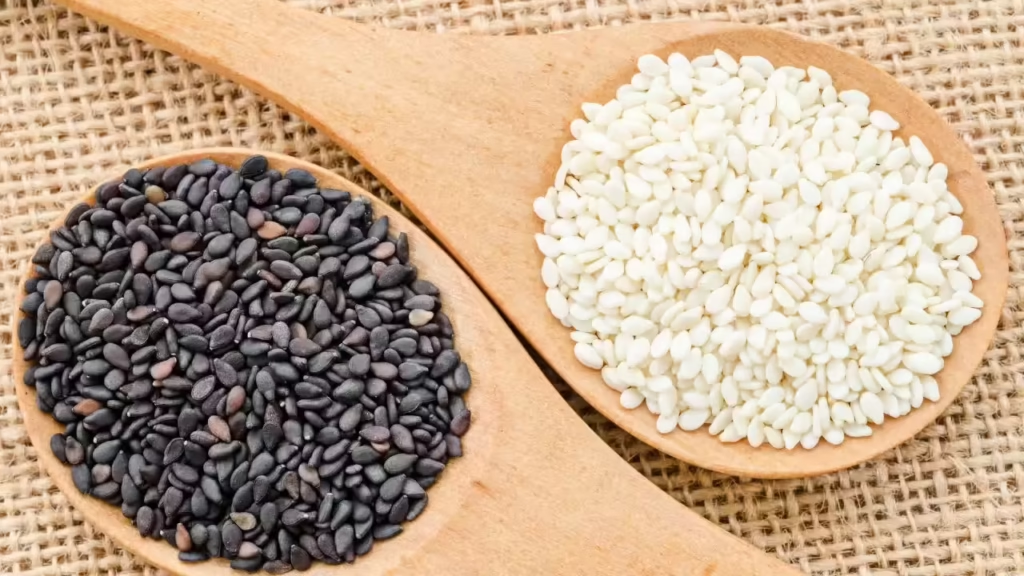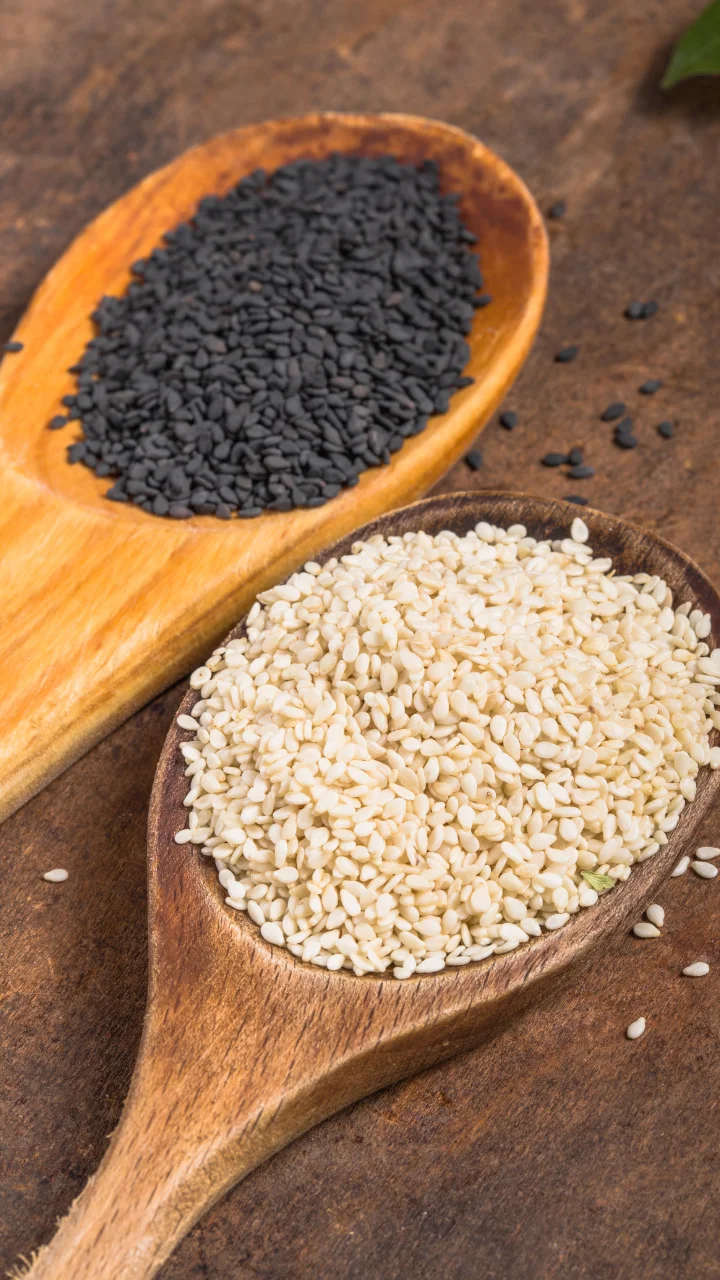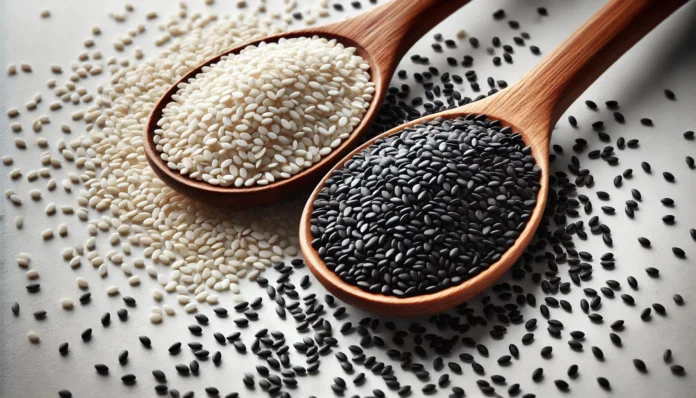INTRODUCTION
Sesame seeds are small, oil-rich seeds derived from the Sesamum indicum plant, one of the oldest cultivated plants in human history. Native to parts of Africa and India, sesame has been grown for thousands of years for its flavorful seeds and valuable oil.These tiny seeds come in a variety of colors, including white, black, yellow, and red, depending on the cultivar. They are widely used in culinary traditions around the world — sprinkled on breads and pastries, incorporated into spice blends like za’atar, or ground into pastes like tahini.

English: Sesame seeds
Urdu: تل (Til)
Hindi: तिल (Til)
Arabic: سمسم (Simsim)
Bengali: তিল (Til)
Tamil: எள்ளு (Ellu)
Telugu: ఎళ్ళు (Ellu)
Marathi: तीळ (Til)
Turkish: Susam
Greek: Σουσάμι (Sousámi)
Swahili: Ufuta wa simsim
HEALTH BENEFITS:

Rich in antioxidants:
Contain compounds like sesamin and sesamol that combat oxidative stress and inflammation.
Heart health:
Can help lower bad (LDL) cholesterol and raise good (HDL) cholesterol, and support healthy blood pressure levels.
Bone support:
Are a good source of calcium, magnesium, and phosphorus, which are essential for bone health.
Anti-inflammatory effects:
The anti-inflammatory properties can help with joint pain and stiffness.
Blood sugar control:
May help reduce blood glucose levels.
Digestive health:
Provide a good source of fiber, which supports a healthy gut and digestion.
Nutrient-dense:
Provide protein, healthy fats, B vitamins, and minerals like iron and zinc.
Skin and hair:
Healthy and vitamins can help promote healthier skin and hair.
Protein:
A 3-tablespoon serving can provide 5 grams of protein, an essential building block for the body.
Healthy fats:
Sesame oil contains monounsaturated and polyunsaturated fats, including omega-6 and omega-9, which support heart health.
Vitamins and minerals:
They are packed with essential minerals like calcium, magnesium, zinc, iron, phosphorus, and copper, as well as B vitamins and vitamin E.
Antioxidants and lignans:
Sesame seeds contain potent antioxidant compounds such as sesamin and sesamol, which help protect the body from oxidative stress and inflammation.
SIDE EFFECTS:

Exacerbated gout:
Sesame seeds contain oxalates, which can worsen symptoms for those with gout.
Weight gain:
Due to their calorie density, eating too many sesame seeds may contribute to weight gain.
Mild symptoms:
Hives, itching, redness, and swelling of the face.
Severe symptoms:
Difficulty breathing, throat swelling, a sudden drop in blood pressure, dizziness, and fainting. This is a life-threatening emergency requiring immediate medical care.
Cross-sensitivity:
People with peanut allergies are sometimes also sensitive to sesame.
HOW TO USE:

Sprinkle on bread and pastries:
Sesame seeds add a crunchy texture and nutty flavor to breads, bagels, buns, and crackers.
Use in salads and stir-fries:
Toasted sesame seeds can be sprinkled over salads, noodles, or vegetable dishes for extra taste.
Mix into dough or batter:
Incorporate sesame seeds into dough for breads or muffins to enhance flavor and nutrition.
Grind into paste:
Sesame seeds can be ground into a smooth, creamy paste called tahini, which is a key ingredient in hummus and various Middle Eastern dishes.
Extract oil:
Sesame seeds are pressed to produce sesame oil, used for cooking, salad dressings, or as a flavor enhancer in Asian cuisine.
Sesame brittle and bars:
Combine sesame seeds with honey or sugar to make sweet, crunchy snacks like sesame brittle or energy bars.
Coating for meats or tofu:
Use sesame seeds as a coating before frying or baking for a crispy crust.
Garnishing
Sprinkle toasted seeds over soups, rice dishes, or dips for visual appeal and added crunch.
Health Uses
Consume raw or roasted seeds for their nutritional benefits—rich in protein, fiber, and essential minerals.
Precautions
Some people are allergic to sesame seeds. Be careful if you have allergies.
Don’t eat too many because they have a lot of calories.
Small whole seeds can be a choking risk for little kids.




